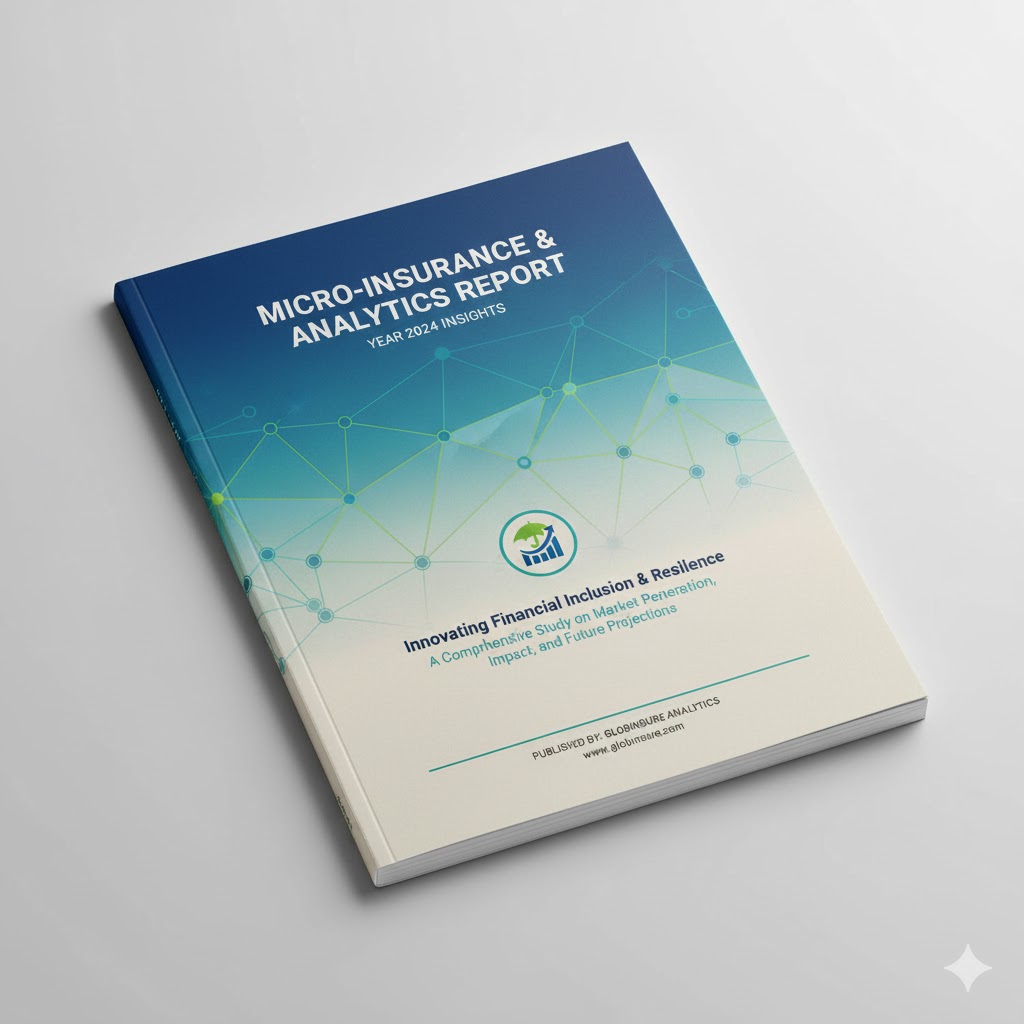Displaying 16 - 29 of 29

Insurance Automation by Lead Foundation in Egypt
Insurance automation initiative led by Lead Foundation in Egypt, exploring how digital systems can enhance access to inclusive life insurance. The case outlines the broader poverty and economic context, key capacity-building interventions, implementation strategy, and an honest reflection on both the successes and challenges faced. It also discusses project outcomes and lessons learned, offering a blueprint for tech-enabled insurance in underserved regions.

Making a profitable inclusive insurance business: a case study of Britam, Kenya
In 2007, Britam, a Kenyan financial group, launched its first microinsurance product for low-income customers. Over 11 years, Britam built a profitable microinsurance business unit covering more than 700,000 lives by 2017. This case study distills key lessons from Britam's journey to guide other insurers in serving traditionally excluded markets.
Date Issued
2019
Topics
Products
Region

Making climate risk microinsurance work. Case Study: Green Delta Insurance Company (GDIC), Bangladesh
Making climate risk microinsurance work: Green Delta Insurance Company in Bangladesh. This case study explores the origin, design, and delivery of Green Delta's agricultural microinsurance program. It reviews pricing mechanisms, subsidy structures, operational challenges, delivery models, and real-world performance results. The analysis offers key lessons for building climate resilience through private-public partnerships in emerging markets.

Making climate risk microinsurance work. Case Study: Kenya Agriculture Insurance Program (KAIP) with APA, Kenya
Information on the Kenya Agriculture Insurance Program developed in partnership with APA Insurance. The overview includes pricing structures, government subsidy mechanisms, challenges in implementation, delivery models, and overall performance metrics. The case outlines key lessons learned from executing a national climate risk microinsurance scheme in a Sub-Saharan African context and provides insight into scaling agricultural resilience through public-private collaboration.
Date Issued
2021
Topics
Region

Making Climate Risk Microinsurance Work. Case Study: MiCRO & Aseguradora Rural (AR), Guatemala
Partnership between MiCRO and Aseguradora Rural to deliver parametric climate microinsurance to smallholder farmers and microentrepreneurs in Guatemala through bundled loans.
Date Issued
2022
Topics

Making climate risk microinsurance work. Case Study: Philippine Crop Insurance Corporation (PCIC), Philippines
Case study of the Philippine Crop Insurance Corporation (PCIC) and its role in climate risk microinsurance. This diagnostic overview outlines PCIC's origin, goals, and subsidy model, and examines the challenges and performance of its delivery system. The paper also highlights pricing strategies, key operational hurdles, and practical lessons learned — contributing to a broader understanding of how public sector agricultural insurance can support resilience in Asia.

MiCRO / SBS / Bancamía – Boosting Resilience for Microentrepreneurs
In 2019, MiCRO and SBS Seguros, in partnership with Bancamía, launched "My Protected Investment", a microinsurance product for SMEs that combines index-based and traditional coverage. Three years after Colombia's first parametric insurance launch, the initiative had already reached almost 120,000 low-income beneficiaries, providing protection against hazards such as excess rain, drought, and earthquakes, while expanding access to underserved urban and rural clients.

Nepal: Introducing index-based insurance for flood-prone communities
Practical Action developed a flood index insurance for Western Nepal smallholder farmers. Features bundled services, cooperative-based sales, and payouts for crop loss after severe floods.

OKO for UN WOMEN & UNCDF: Case study
An index-based crop insurance product tailored specifically for women smallholder farmers in Mali. This inclusive approach improves gender equity and strengthens financial protection for rural women by providing climate-resilient risk coverage. The model aims to address both agricultural vulnerability and structural gender gaps in access to insurance.
Date Issued
2022
Topics
Region

Pioneer Microinsurance: Building a Business around Positive Customer Experience Pays Off
Pioneer Microinsurance in the Philippines built a strong customer-centric culture by leveraging client data and insights and embedding customer-focused behaviors across the organization. This approach improved the customer experience, strengthened client value, and drove significant business growth, including higher policy renewals and expanded outreach.
Date Issued
2018
Topics
Products
Region

Social Finance Brief: MiCRO - The Microinsurance Catastrophe Risk Organization
Social Finance Brief on MiCRO, focusing on their approach to agricultural insurance in Latin America. Highlights innovative financial solutions tailored to vulnerable farming populations, operational strategies, and key implementation insights drawn from regional experience.
Date Issued
2022
Topics
Products

WFP Nicaragua – Insurance and Social Protection: A Key Tool to Increase Resilience and Food Security in Nicaragua
WFP Nicaragua implemented a risk-layered insurance approach through the R4 Rural Resilience Initiative and sovereign CCRIF coverage.
Date Issued
2023
Topics

WFP Southern Africa
WFP's R4 initiative insures 8,000+ households in Zimbabwe and Mozambique against drought, floods, and cyclones using area-yield and weather index insurance, in partnership with local insurers.

World Food Programme's Sahel Climate Catastrophe Layer
The document describes the Sahel Climate Catastrophe Layer (SCCL) by the World Food Programme (WFP), a parametric insurance covering vulnerable populations against extreme droughts in Burkina Faso, Mali, and Niger. The initiative enables rapid, pre-financed disaster response, complements national risk financing tools, and strengthens regional climate resilience.
Date Issued
2025
Topics
Region
